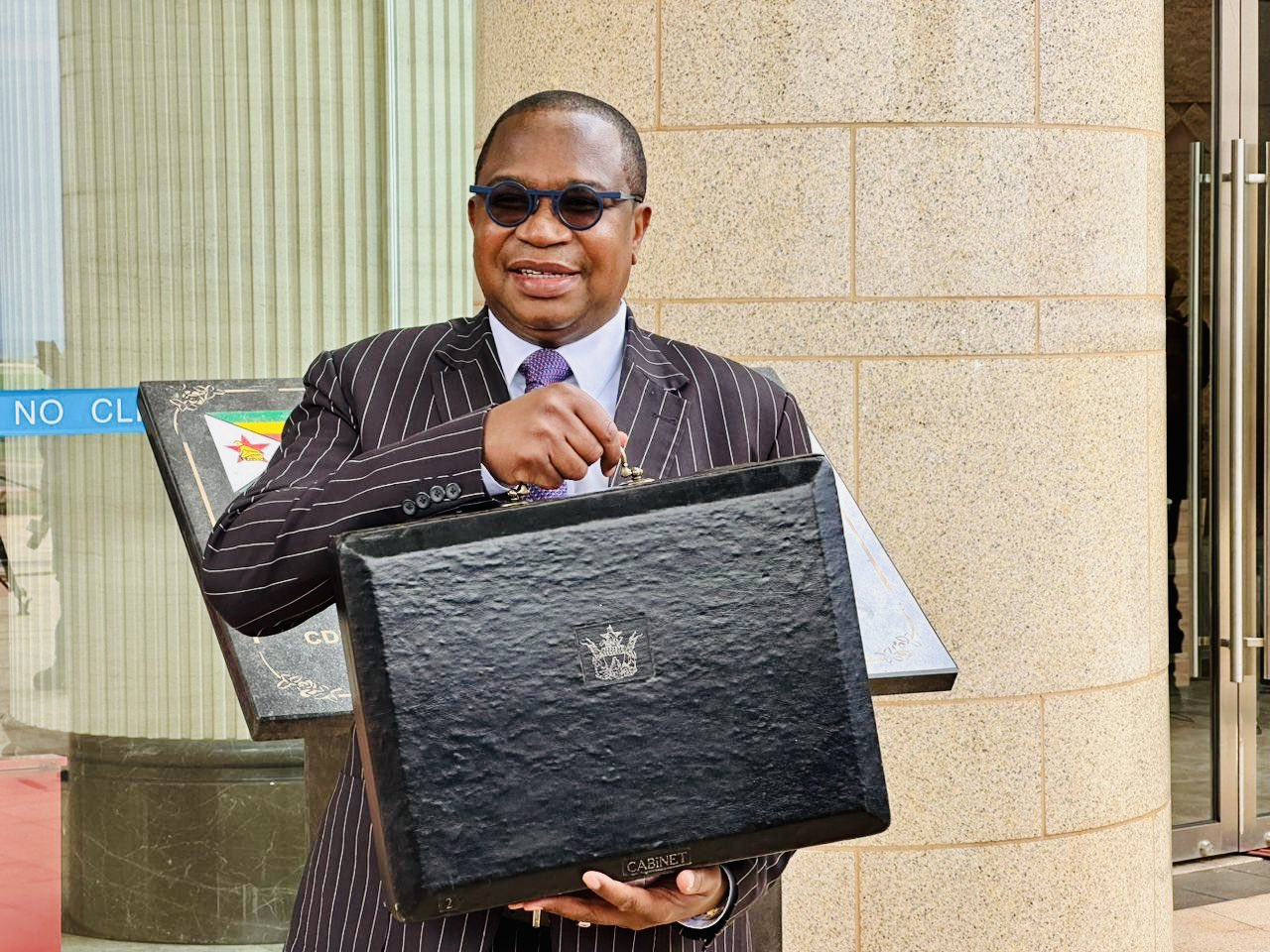The poor are often times alone. Their plight is often exacerbated by a society that offers superficial support rather than genuine solutions. Many who claim to advocate for the disadvantaged do so with a half-hearted commitment, prioritising their own interests over the needs of those they intend to help.
These so-called solutions frequently reflect a lack of understanding or empathy, focusing on convenience for the providers rather than the actual challenges faced by the impoverished.
This insincerity can lead to programmes and policies that are more symbolic than effective, failing to address the root causes of poverty.
As a result, the poor may feel more isolated, trapped in a cycle that seems inescapable.
To create meaningful change, it is essential for advocates to engage authentically with those they aim to help, listening to their voices and collaborating on solutions that genuinely empower and uplift, rather than merely placating the status quo.
The use of reusable pads
The issue of donating reusable sanitary pads to poor girls in rural schools is contentious.
Many are beginning to believe the idea was not well thought out at the outset. Those with particularly heavy menstrual flows know that you cannot wash a reusable pad to sparkling clean levels, dry it and reuse it again and again. For starters, you need time, because it takes a lot of time to wash out the blood.
Some of it is dispensed from the body in chunks that resemble pounded liver! Then you need buckets of water, which is an on-going scarce resource in many parts of the region due to drought.
Obviously, you require soap and sanitisers.
This whole process of washing the reusable pads is a gross inconvenience. The question that begs an answer then is, why can’t the poor access disposable pads, for they are the most convenient to use. Why can’t fund-raising efforts be directed to securing disposable pads for even the ones that cannot afford to buy them for themselves?
In Zimbabwe, many girls in poor communities face significant challenges related to menstrual hygiene management, leading to school absenteeism during their menstrual cycles. This issue is compounded by a whole host of factors, including, but not restricted to the following:
Economic barriers
Cost of sanitary products: Disposable pads and cotton wool can be prohibitively expensive for families living in poverty. While reusable pads are cost-effective in the long run, the initial purchase may still be significant for families with limited income. When faced with limited financial resources, many parents prioritise basic needs such as food and shelter over menstrual products.
Lack of subsidies: Unlike some countries that provide subsidised menstrual products, Zimbabwe lacks programmes that support low-income families in accessing these reusable options.
Access to affordable options: In some areas, especially rural regions, there is limited access to affordable sanitary products.
Many girls may not have the means to travel to urban centres where these products are more readily available at a cheaper price.
Impact on education
School absenteeism: Girls who cannot afford menstrual hygiene products often miss school for several days each month. This absenteeism leads to significant gaps in their education, affecting their academic performance and long-term educational outcomes.
Dropout rates: Prolonged absenteeism contributes to higher dropout rates among girls, particularly at critical educational stages. This perpetuates cycles of poverty and limits future opportunities for these young women.
Cultural belief, stigma, lack of support
Menstruation taboos: In many communities, menstruation is stigmatised, leading to a lack of open dialogue about menstrual health.
This stigma can discourage girls from seeking help or discussing their needs with parents or teachers or to use products that require visibility, like reusable pads.
Insufficient school support: Many schools lack adequate facilities for menstrual hygiene management, such as private toilets and access to water dispensed through washing basins.
Without these resources, girls feel uncomfortable attending school during their periods because of the lack of privacy.
Cultural beliefs: Cultural beliefs may associate menstruation with impurity, leading to negative perceptions of washing and reusing pads. This stigma can deter girls from adopting reusable options.
Health and well-being
Physical and mental health: Missing school can have negative effects on girls' physical and mental health. The stress of managing menstruation without proper resources can lead to anxiety and embarrassment.
Reproductive health education: A lack of education about reproductive health and menstruation can exacerbate the situation. Girls may not be aware of the importance of menstrual hygiene or may lack knowledge about available resources, including reusable pads.
Access to water and hygiene
Water scarcity: In many rural areas of Zimbabwe, access to clean water is a significant challenge. This scarcity makes it difficult for girls to wash reusable pads adequately, increasing the risk of infections.
Sanitation facilities: Inadequate sanitation facilities can further complicate the hygienic management of reusable pads. Without access to private, safe places to wash and dry pads, girls may be discouraged from using them.
Education and awareness
Lack of information: There may be insufficient education on menstrual health and hygiene management, which is crucial for the proper use and maintenance of reusable pads. Without comprehensive education, girls may find it difficult to understand how to care for and use these products safely.
Training programmes: Effective training programmes are often lacking, meaning that even if girls have access to reusable pads, they may not know how to use them properly. This can lead to hygiene issues and potential health risks.
Durability and maintenance
Quality of products: The quality of reusable pads can vary, and if they are not durable, they may need to be replaced more frequently than expected. Low-quality products may not withstand repeated washing, leading to additional costs and waste. In addition, low quality products are uncomfortable and bruise the young girls in between their legs.
Maintenance challenges: Regular washing and drying are essential for maintaining hygiene, but in areas with limited sunlight or space for drying clothes, this can be a challenge. If pads are not dried properly, they can develop odours or harbour bacteria, which can pose health risks to the young girls.
Case for against using reusable pads
The use of reusable pads by young girls from poor communities has both advantages and disadvantages.
The case for reusable pads
Cost-effective: Reusable pads can be more economical over time compared to disposable pads. While the initial investment is higher, they can be used for several months or even years, reducing the overall cost for families.
Environmental benefits: Reusable pads generate less waste than disposable pads, which can take hundreds of years to decompose. This can mitigate environmental issues, especially in communities where waste management is poor.
Health and safety: Many reusable pads are made from natural materials, which can reduce the risk of irritation and allergic reactions that some girls might experience with disposable products containing synthetic materials.
Empowerment and education: The use of reusable pads can empower girls by providing them with a sustainable product they can manage themselves. Educational programmes around their use can also promote discussions about menstruation, hygiene, and reproductive health.
Cultural acceptance: In some cultures, reusable pads may be more acceptable than disposable ones, as they can align with traditional practices of reusing and recycling materials.
The case against reusable pads
Initial cost: The upfront cost of purchasing reusable pads can be a barrier for families living in poverty, who may not have the means to invest in them upfront.
Access to water and hygiene: Using reusable pads requires access to clean water and a safe place to wash them. In communities where water is scarce or sanitation is poor, this can lead to hygiene issues and health risks.
Cultural stigma: In some cultures, menstruation is stigmatised, and the idea of washing pads may be viewed negatively. This can discourage girls from using them.
Education and awareness: There is a need for education on how to properly care for and use reusable pads. Without proper training, girls may not be able to maintain hygiene, leading to potential health risks.
Durability and maintenance: Reusable pads require care and maintenance. If they are not properly washed and dried, they can harbour bacteria. Additionally, they may wear out over time and need to be replaced.
Potential solutions
Access to menstrual products: Initiatives to provide free or subsidised sanitary products in schools can help reduce absenteeism. Programmes that distribute reusable pads can also be effective in addressing the cost barrier.
Education and awareness campaigns: Comprehensive education programmes that address menstrual health and hygiene can empower girls and reduce stigma. These programmes can involve both girls and boys to foster a more supportive environment.
Improving school facilities: Enhancing school infrastructure to include clean and private sanitation facilities can create a more conducive environment for girls, encouraging them to attend school during their periods.
Conclusion
The issue of school absenteeism due to lack of access to menstrual hygiene products is a significant barrier for many girls in Zimbabwe.
Addressing this challenge requires a multi-faceted approach, including economic support, educational initiatives, and improved school facilities. By tackling these issues, it is possible to reduce absenteeism, empower girls, and promote gender equality in education.
While reusable pads present a sustainable and economical option for menstrual hygiene management, various barriers specific to the Zimbabwean contexts hinder their widespread adoption.
Addressing these challenges requires a multi-faceted approach that includes increasing access to water and sanitation, providing education about menstrual health, and combating cultural stigma.
Collaborative efforts involving government, NGOs, and local communities can help create an environment where reusable pads are a viable and accepted option for young girls.
Be that as it may, when the uptake is low, there has to be a reframing of ideas with a view to considering donating and subsidising disposable pads.
The benefits of reusable pads are noted, especially in terms of cost-effectiveness and environmental impact, but challenges related to hygiene factors, cultural acceptance, and access to resources must be addressed.
Tailor made programmes that consider local contexts and provide education and resources can help maximise the benefits of reusable pads for young girls in poor communities.
Be that as it may, providing disposable pads, notwithstanding the environmental considerations, remains the most practical and most convenient to the users. Efforts must be made to deliver what is good for the gander, and also to the goose.
Ndoro-Mkombachoto is a former academic and banker. She has consulted widely in strategy, entrepreneurship and private sector development for organisations that include Seed Co Africa, Hwange Colliery, RBZ/CGC, Standard Bank of South Africa, Home Loans, IFC/World Bank, UNDP, USAid, Danida, Cida, Kellogg Foundation, among others, as a writer, property investor, developer and manager. — @HeartfeltwithGloria/ +263 772 236 341.





